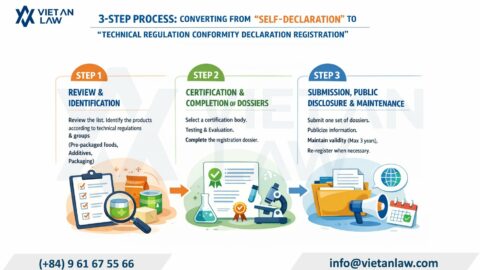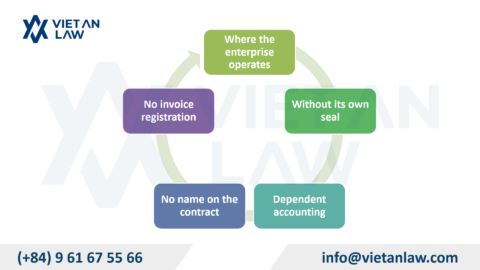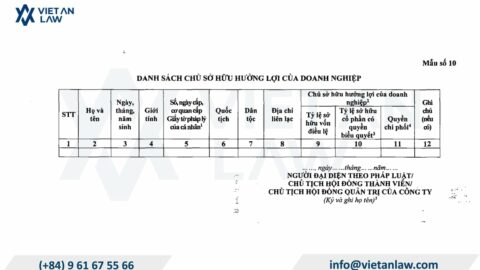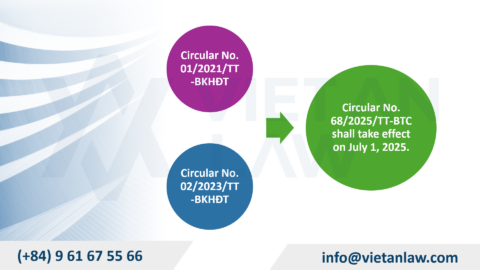Divorce disputes are a common type of dispute in marriage and family relationships and tend to increase in today’s life. When divorcing, if the parties cannot reach an agreement, there will be some disputes about child custody and property relations. Choosing the right court will help litigants save time and effort. However, many people encounter difficulties when they cannot determine which court has jurisdiction to resolve divorce. Viet An Law Firm would like to present an article on the authority to resolve divorce disputes in Vietnam below.
Pursuant to Clause 14 of Article 3 of the 2014 Law on Marriage and Family, “Divorce is the termination of marital relations according to a legally effective judgment or decision of the Court”.
According to Clause 1, Article 28 of the 2015 Civil Procedure Code, there is a regulation that divorce is a type of marital and family dispute under the jurisdiction of the Court. Divorce disputes will arise when the parties are unable to come to an agreement and agree with each other to resolve an issue regarding the legal rights and obligations of the parties upon divorce.
Thus, divorce disputes are understood as disputes about the legal rights, interests, and obligations of the subjects in the legal relationship of marriage and family.
Pursuant to Point a, Clause 1, Article 35 of the 2015 Civil Procedure Code, civil, marital and family disputes specified in Article 26 and Article 28 of this Code, except for disputes specified in Clause 7, Article 26 of this Code falls under the jurisdiction of the District People’s Court.
Pursuant to Clause 1, Article 39 of the 2015 Civil Procedure Code, which stipulates the territorial jurisdiction of courts, accordingly:
From the above two bases, it can be concluded that the general authority to resolve divorce disputes in common cases is the district-level People’s Court where the defendant resides or works is the court with jurisdiction to resolve divorce disputes. resolve divorce disputes. If the litigants can agree on a request to the Court where the plaintiff resides or works, the plaintiff has the right to carry out divorce procedures at his or her place of residence. For divorce property division disputes where the object of the dispute is real estate, the Court where the real estate is located will have jurisdiction to resolve.
According to Clause 3 Article 35 of the Civil Procedure Code, the District People’s Court will not have the authority to resolve civil, marital, and family disputes and requests that include :
Pursuant to Clause 3, Article 37 of the 2015 Civil Procedure Code, in the above cases, the Provincial People’s Court will have the authority to resolve disputes according to first-instance procedures in the above cases. Except for special cases specified in Clause 4, Article 35 of the 2015 Civil Procedure Code if the divorce takes place between a Vietnamese citizen residing in a border area and a citizen of a neighboring country residing in the same area. border areas with Vietnam, the jurisdiction to resolve the matter belongs to the district-level People’s Court. This is to reduce the burden on the provincial people’s court while creating favorable conditions for people living in border areas to travel conveniently.
In addition, Point c, Clause 1, Article 40 of the 2015 Civil Procedure Code stipulates that if the defendant does not have a place of residence, work, or headquarters in Vietnam or the case is about an alimony dispute, the plaintiff can request a Court which they reside, work, or are headquartered to resolve the matter.
Thus, normally, divorce cases involving foreign elements have jurisdiction over the Provincial People’s Court.
Pursuant to the provisions of Article 127 of the Law on Marriage and Family 2014, it is stipulated as follows: “Divorce between Vietnamese citizens and foreigners, or between foreigners and permanent residents in Vietnam, shall be resolved at competent authorities of Vietnam according to the provisions of this Law.”
Thus, Vietnamese courts have the authority to resolve divorce cases involving foreign elements between foreigners permanently residing in Vietnam.
Does the district-level People’s Court have jurisdiction to resolve divorce disputes if the litigants are foreigners?
Pursuant to Article 35 of the Civil Procedure Code 2015, district-level People’s Courts do not have the authority to resolve divorce disputes if the litigants are foreigners, except for the cases specified in Clause 4 of this law.
Accordingly, the district-level People’s Court of the place of residence of Vietnamese citizens annuls illegal marriages, resolves divorces, disputes about the rights and obligations of husband and wife, parents and children, and recognition of children. father, mother, child, adoption, and guardianship between Vietnamese citizens residing in border areas and citizens of neighboring countries residing in border areas with Vietnam according to the provisions of this Code and other provisions of Vietnamese law.
Pursuant to Clause 2, Article 37 of the 2015 Civil Procedure Code, the Provincial People’s Court has the authority to resolve according to first-instance procedures civil cases falling under the jurisdiction of the District People’s Court as prescribed in Article 35 of this Code that the Provincial People’s Court shall take up on its own to resolve when deemed necessary or at the request of the District People’s Court.
Clients who need advice on the authority to resolve divorce disputes, please contact Viet An Law Firm for the best support.




